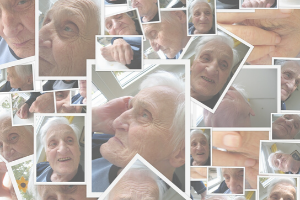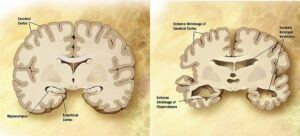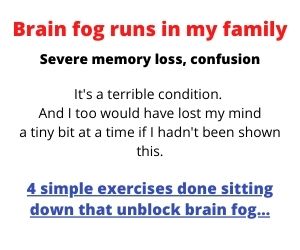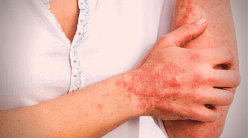Alzheimer’s Disease ( AD )
Alzheimer’s disease (AD ) is a chronic neurodegenerative disease that usually starts slowly and worsens over time. It is the cause of 60- 70 % of dementia.
Symptoms Of Alzheimer’s Disease

As the disease advances, Alzheimer’s early symptoms can include problems with language, disorientation(including easily getting lost), mood swings, loss of motivation, not managing self-care, and behavioral issues. The major symptom is a gradual onset of forgetfulness regarding names, words, and day-to-day events. The ability to use language, arithmetic, and spatial orientation may slowly deteriorate. Judgment and personal hygiene may decline and delusions or hallucinations may occur. Late in the course of the disease, the patient may forget how to use common, everyday tools or utensils and develop mild difficulty with ambulation. AD is the most common form of dementia among people age 65 and older, progressing slowly from mild forgetfulness to the need for total care.
Causes Of Alzheimer Disease
The cause of Alzheimer’s disease is poorly understood. About 70% of the risk is believed to be genetic with many genes usually involved. Other risk factors include a history of head injuries, depression, or hypertension. The disease process is associated with plaques and tangles in the brain. Diagnosis involves brain imaging, either with computed tomography (CT) or magnetic resonance imaging (MRI) scans, blood tests, a brain-wave test (electroencephalogram, or EEG), and sometimes neuropsychological testing. It is important to rule out depression since elderly depressed individuals can appear demented. Blood tests help rule out the kidney, liver, thyroid, and metabolic disorders. Multiple strokes (infarcts), tumors, vitamin deficiencies, syphilis, AIDS, and enlarged ventricles with excess cerebrospinal fluid (hydrocephalus) are other potential causes of dementia. There are other neurodegenerative disorders such as Pick’s disease and Lewy body disease that cause dementia and need to be considered in the differential diagnosis.
Alzheimer’s Brain

What does Alzheimer’s do to the brain? In AD, the brain tends to shrink with loss of brain cells, particularly in a memory-related area called the hippocampus. Abnormal fibers known as neurofibrillary tangles are found inside of nerve cells and there are deposits called senile plaques, made of an amorphous protein (amyloid), in the spaces between neurons. Degeneration of other brain cells occurs in a form called granulovacuolar degeneration, again most prevalent in the hippocampus. The main constituent of amyloid plaques is beta-amyloid, derived from a much larger protein called the amyloid precursor protein (APP). Enzymes or proteases called alpha, beta, and gamma secretases cleave the APP molecule, normally bound to nerve cell membranes, into different length amyloid-beta molecules. An abnormal 42 amino acid length residue tends to deposit into the senile plaques. A gene error in familial AD codes for proteins called presenilins, which may be gamma-secretase, the secretase thought to be abnormal in the AD. On chromosome 21, familial cases may also have a gene error coding for an abnormal amyloid precursor protein.
Preventing The Alzheimer’s Disease
How Can You Prevent Alzheimer’s Disease? Mental and physical exercise, and avoiding obesity may decrease the risk of AD; however, evidence to support these recommendations is not strong. Symptoms can be treated with medication, but there is no cure.
Natural Treatment For Alzheimer
The good news is that there are Alzheimer’s natural treatment options that can effectively improve this condition. What is the best treatment for alzheimer disease? Click The Link Below And Find Out More about Natural Remedies for Alzheimer…
Wanna Learn More About Natural Alzheimer Treatment? Click Here
References: Herbs and Nutrients for Neurologic Disorders: Treatment Strategies for Alzheimer’s, Parkinson’s, Stroke, Multiple Sclerosis, Migraine and Seizures, Sidney J. Kurn, Sheryl Shook, Inner Traditions/Bear, 2016
Disclaimer: All information presented on this website is for informational purposes only. These statements have not been evaluated by the Food and Drug Administration. This website is not intended for diagnosis, treatment, treatment or prevention of disease and is not intended for substitution treatment. This information is not meant to cover all possible uses, precautions, interactions or adverse effects. This information may not fit your specific health circumstances. Never delay or disregard seeking professional medical advice from your doctor or other qualified healthcare providers because of something you have read on whatcure.com. Please seek the advice of a healthcare professional for your specific health concerns.










